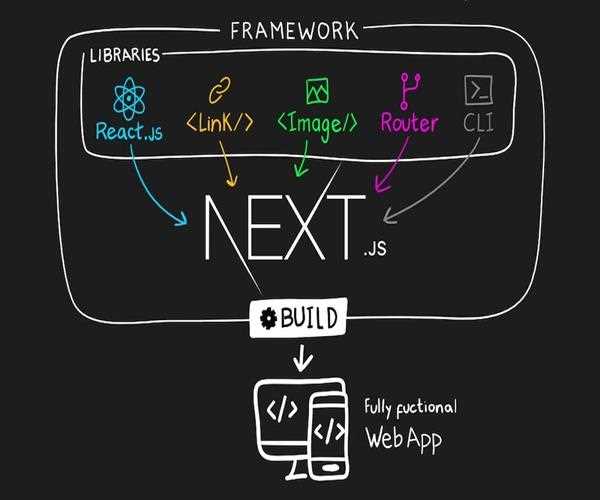Next.js is a JavaScript framework for building server-rendered or statically exported React applications. It is designed to make it easy to build universal React applications that are optimized for performance and can be rendered on the server as well as the client.
There are several reasons why developers might choose to use Next.js for building a website:
Server-side rendering: Next.js allows developers to render React components on the server, which can improve the performance of a website by reducing the amount of work that needs to be done by the client. This can be especially beneficial for websites with a lot of dynamic content or a large number of users.
Automatic code splitting: Next.js automatically splits code into smaller chunks, which can be loaded on demand to improve the performance of the website. This can help to reduce the initial load time of the website and make it feel faster for users.
Optimized production builds: Next.js provides optimized builds for production environments, which can further improve the performance of the website.
Routing: Next.js provides a simple and flexible routing solution that works both on the server and the client. This can make it easier to build a website with multiple pages and routes.
Easy to learn: Next.js is built on top of React, which is a popular and easy-to-learn JavaScript library for building user interfaces. This means that developers who are already familiar with React may find it easier to get started with Next.js.
Overall, Next.js can be a good choice for building a website because it provides a number of features that can help to improve the performance and scalability of the website.

Should I use the next JS for the web app?
Next.js is a popular JavaScript framework that allows you to build server-rendered React applications easily. It can be a good choice if you want to build a web app that needs server-side rendering, automatic code splitting, optimized performance, and easy deployment.
One of the main advantages of using Next.js is that it can improve the performance of your application by automatically server-rendering your pages on the initial request. This can make your app feel faster and more responsive, especially on slower networks or devices.
Next.js also provides a set of features that can make it easier to develop, test, and deploy your application. For example, it has automatic code splitting, which means that it will only send the code that is needed for a particular page to the client, rather than sending the entire app. This can help reduce the size of your JavaScript bundles and improve the loading time of your app.
Overall, Next.js can be a good choice for building web apps, especially if you need server-side rendering or want to take advantage of its other features. However, it may not be the best choice for every project, and you should consider your specific needs and requirements before deciding whether to use it.
Next.js is popular among developers because it makes it easy to build scalable and performant applications using React. It is often used to build applications that are served over the web, but it can also be used to build desktop or mobile applications.